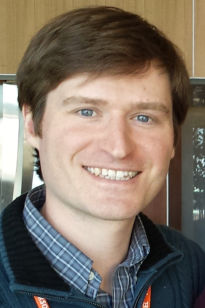David Weintrop
(He/him)
Assistant Professor; Teaching & Learning, Policy & Leadership
College of Education, College of Information Studies
University of Maryland, College Park
How did you get interested in including computer science in your education program?
A central goal of my work is to help people better understand and participate in the computational world around them. Increasingly, I see formal K-12 education as the key mechanism to make this happen. This means increasing the number of certified computer science teachers and also better preparing all teachers to integrate the big ideas of computing into their classrooms.
Why did this work become important to you? What steps did you take to develop more expertise in this space?
My first career was as a software developer working for a series of start-ups developing software to advance various industries. In doing this work, it became clear to me how having a basic understanding of computational ideas can change the way people experience and contribute to the world. These ideas led me to pursue a Ph.D. in Learning Sciences, and from there into a College of Education as I came to see schools as a key driver of this type of change.
Describe an interesting project you have participated in related to CS Education
One project I am particularly proud of is the work I did investigating the role of block-based programming in formal computer science classrooms. My research found that block-based tools (e.g., Scratch) are productive learning environments, but that concepts and practices developed with block-based tools do not automatically transfer over to text-based programming languages (e.g., Java). What I like most about this project is how it was answering a question that so many computer science teachers were asking. I have had countless conversations with teachers who, upon hearing about my work, will respond: I had always wondered about that! Being able to provide them with an answer, as well as guidance on how to improve their students' learning, is really gratifying.
Share a success or challenge. Encourage others by sharing your resources and ideas. What do you recommend to others? What would you caution people to avoid?
In terms of a success, I'd like to highlight the Scratch Encore project. Scratch Encore is a fully featured, culturally responsive middle school computer science curriculum. The curriculum was developed with researchers at the University of Chicago and teachers/administrators in Chicago Public Schools and has been downloaded over 1,500 times by people from around the world. In terms of recommendations to share, beyond using Scratch Encore, it is to participate in research practice partnerships. If you are a teacher/administrator, reach out to researchers and tell them what questions you have for challenges you face. If you are a researcher, go talk to some teachers/administrators and have their ideas/needs/challenges inform your next project!
What do you wish that others knew about your education program at UMD?
We have a teacher preparation program to become a certified computer science teacher in Maryland!
What are you proud of?
I am proud of the new project I am just starting out called API Can Code: Situating Data Science in the Digital Lives of Students. It's a 5-year project exploring ways to situate data science in the lived experiences of today's high school students. I'm just getting started and am really excited to see where it goes!

